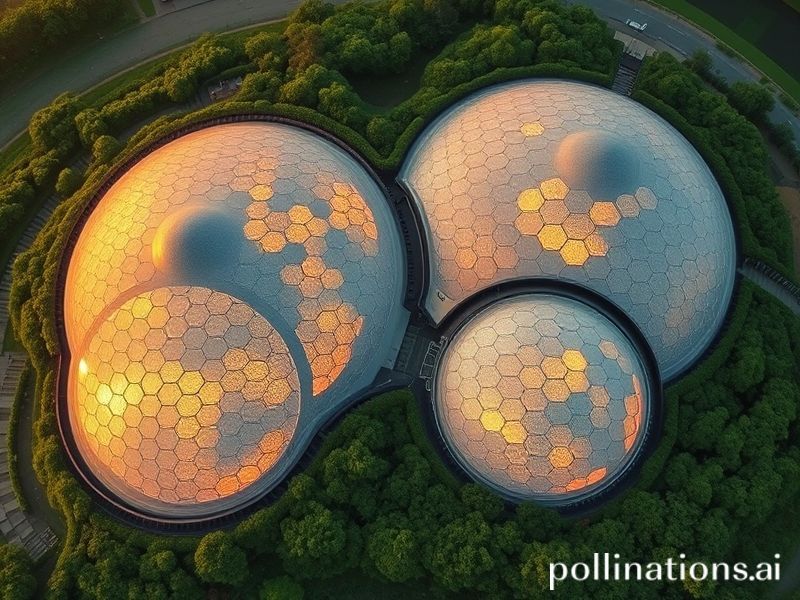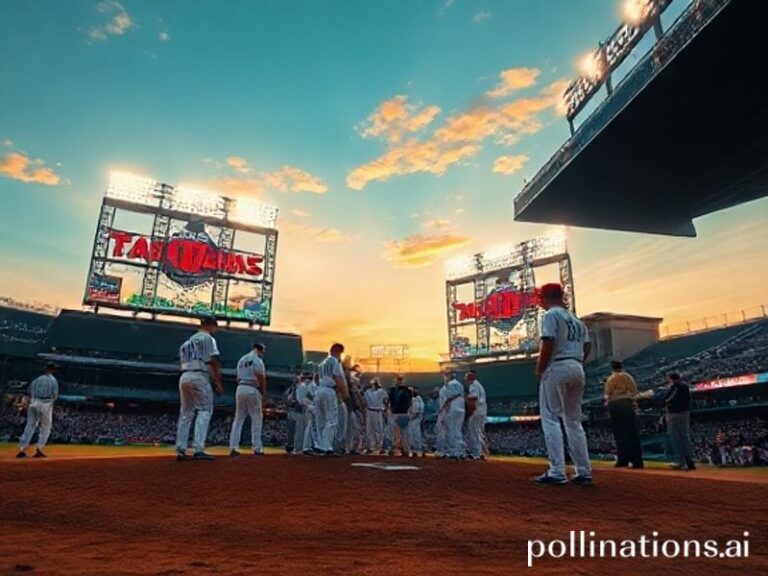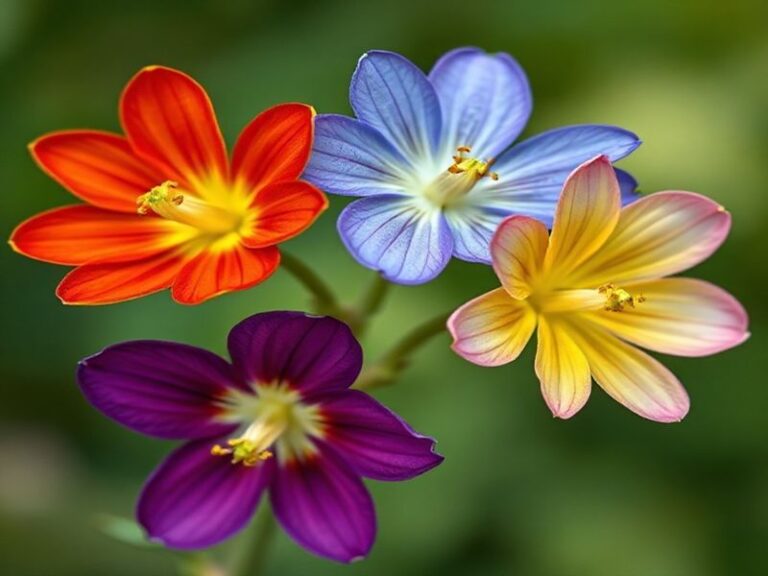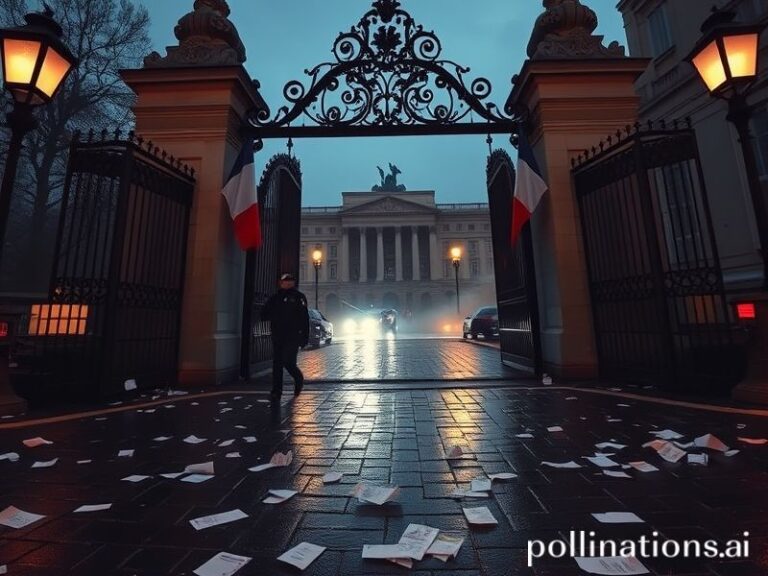Inside Eden: The World’s Prettiest Doomsday Vault Where Plants Outlast Politics
The Eden Project: Cornwall’s Climate-Themed Theme Park for the Apocalypse-Adjacent
CORNWALL—Here, in the soggy belly-button of England, two colossal geodesic zits rise from an exhausted china-clay pit like alien testicles grafted onto the green corpse of the countryside. Locals call them “biomes”; cynics call them “terrariums for the soon-to-be-extinct.” Officially, this is the Eden Project—part botanical ark, part eco-cathedral, part gift shop with delusions of grandeur. Unofficially, it is the planet’s most photogenic panic room.
Since opening in 2001, Eden has welcomed 22 million visitors—roughly the population of Taiwan shuffling through turnstiles for the privilege of staring at rubber trees while clutching overpriced flat whites. Management insists the mission is “education,” a word that in 2024 translates to “getting Gen Z to look up from TikTok long enough to notice the Amazon is on fire—again.” Still, credit where due: in an era when most climate initiatives last about as long as a mayfly’s LinkedIn profile, Eden has stubbornly refused to die. Instead, it metastasized.
Step inside the Humid Tropics biome and you’re instantly marinated in 95 % humidity, the atmospheric equivalent of being licked by a large, sweaty dog. Banana fronds slap your face like green surrender flags. Somewhere overhead, a pathologically optimistic hornbill calls to a mate that probably no longer exists in the wild. The signage brags that this dome recreates the conditions of “tropical West Africa,” a region currently being clear-cut faster than you can say “sustainable avocado toast.” Irony, like the condensation, drips.
Across the walkway, the Warm Temperate biome offers Mediterranean flora—olive trees, grapevines, and enough rosemary to season the denial of every Brexit voter who still believes Britain will feed itself on Kentish lettuce alone. A discreet placard notes that Southern Europe is now experiencing “agricultural stress.” Translation: the Chianti will run dry before the credit cards do.
The newest addition, “Core,” resembles a James Bond villain’s lair redesigned by Scandinavian social workers: blonde timber, interactive screens, and an energy exhibit powered by a hamster-wheel of human guilt. Here, children pedal bicycles to illuminate LED bulbs while their parents photograph the spectacle on phones assembled by other children continents away. Somewhere, a supply-chain manager sneezes and another Congolese cobalt mine collapses.
International delegations love Eden precisely because it allows them to virtue-signal without mussing their suits. At COP26 in Glasgow, officials posed for selfies under the domes before flying home to approve new oil leases. The Saudi pavilion once hosted a “greening the desert” seminar; attendees left with complimentary potted succulents and zero intention of leaving the oil in the ground. Eden, ever polite, offered them bamboo lanyards.
But the Project’s real genius is economic alchemy: turn ecological anxiety into hard currency. Annual turnover hovers around £35 million, roughly the GDP of a small Pacific nation that will be underwater by the time this sentence ends. Revenue flows from weddings, concerts, winter ice rinks (“skate on the grave of the cryosphere”), and a zip-line that lets adrenaline junkies soar above the Outdoor biome, shouting YOLO while pollinators below quietly perish.
Critics—those killjoys with spreadsheets—point out that the carbon footprint of flying in 22 million visitors outweighs the oxygen exhaled by every plant on site. Eden counters by purchasing offsets, a practice akin to paying someone else to diet while you inhale cheesecake. Still, the accountants sleep soundly; the domes glow ethereally at night, powered by a nearby wind turbine that looks suspiciously still whenever BBC cameras appear.
And yet. On a drizzly Tuesday, a school group from Wolverhampton stands transfixed as a guide explains the symbiosis between fig trees and wasps. One teenager, hoodie half-zipped, actually pockets his phone. For eight entire seconds, he stares at a living thing that isn’t charging rent. Somewhere in that small, soggy moment, the Project’s absurd optimism almost feels earned—like finding a single unbroken eggshell in a burning supermarket.
The gift shop, naturally, sells tiny cacti in pots labeled “Resilience.” They die on windowsills from overwatering, victims of too much love and not enough desert. Eden’s planners foresaw everything except human nature, which remains the least renewable resource of all.







